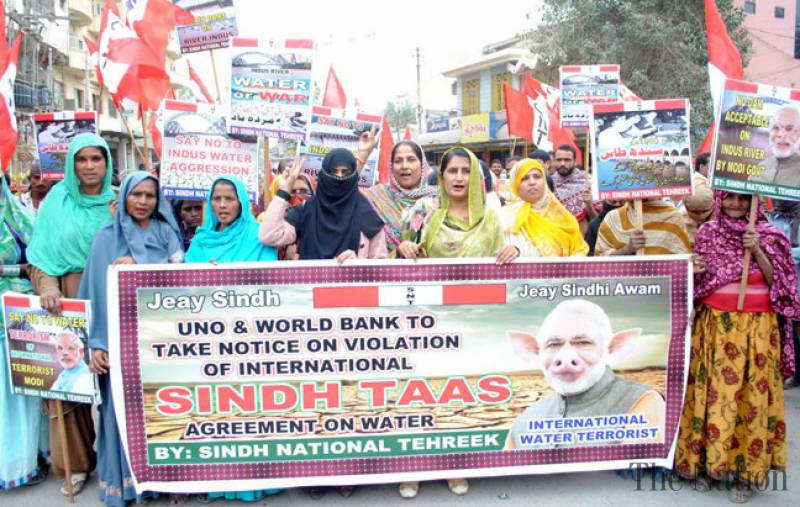Muhammad Ali

Water issue is a core issue between Pakistan and India because, firstly, it is related to the disputed Jammu and Kashmir issue, and secondly, Pakistan is dependent on a single river basin, which its economy, agriculture and energy needs rely on. Secretary level Water dialogue between Pakistan and India will be held in Washington on September 14 and 15. World Bank is holding the talks between the two countries and discussion will be on dams built by India on Pakistani rivers. Secretary Waters Resources Arif Ahmed Khan will lead the Pakistani delegation while Indus Water Commissioner Asif Baig, Attorney General Ashtar Ausaf will also be the part of that delegation.
Dialogues between Pakistan and India during the recently held Water talks in Washington has raised hopes for an amicable resolution of this dispute, according to diplomatic sources. Pakistan and India disagree over construction of the Kishenganga (330MW) and Ratle (850MW) hydroelectric power plants being built by India. Pakistan contends that the technical design features of the two plants contravene the Indus Waters Treaty. The plants are on a tributary of the Jhelum and Chenab rivers, respectively.
Foreign Minister Khawaja Asif has made it clear that Pakistan would not accept any modifications or changes to the IWT. IWT signed in 1960, gives India control over the three eastern rivers of the Indus basin – the Beas, the Ravi and the Sutlej- while Pakistan has the three western rivers- the Indus, the Chenab and the Jhelum. The Indus Waters Treaty was signed after nine years of negotiations between Pakistan and India with the help of the World Bank, which is a signatory.
Foreign Minister Khwaja Muhammad Asif said that India is busy waging water aggression and is damaging Pakistan’s agriculture and hydel projects. India is busy waging water aggression against Pakistan, which is against the doctrine of the Indus Water Treaty.
However, recent tensions also affected the water talks as India expressed its intention to use water as a tool to influence Pakistan’s Kashmir policy. Pakistan rejected India’s charge of supporting militants, but vowed to continue supporting the Kashmiri movement for self-determination.
That is why, the spirit of cooperation displayed during the last meeting was welcomed in Washington. Careful not to hurt this rare opportunity for a positive engagement between the two neighbours, the World Bank decided not to publicize the talks. However, it did issue a brief statement on Aug 1, announcing that the talks had ended and the two sides agreed to meet again in September. The World Bank also issued a fact-sheet with the statement, giving a brief description of the dispute and the efforts it had made to resolve it. The bank clarified that it was not financing the disputed projects.
Currently, India is pursuing a plan to construct a number of hydropower and water storage projects that could affect the pattern and flow of the western rivers, if constructed and operated in violation of the treaty. Any violation of the treaty by India could harm the agriculture sector, hydropower generation and environment in Pakistan. India is always trying to implement its hegemonic designs in the region, tries to interfere in domestic politics of the neighboring States, and creates instability through promoting terrorism. It is time that India should soften its illegal stance on Indus Water Treaty. Pakistan should engage with India regarding IWT in a comprehensive way. International lobbying should be intensified on the point, i.e., water being the “lifeline” issue for Pakistan and this could trigger a major war between the two countries.



